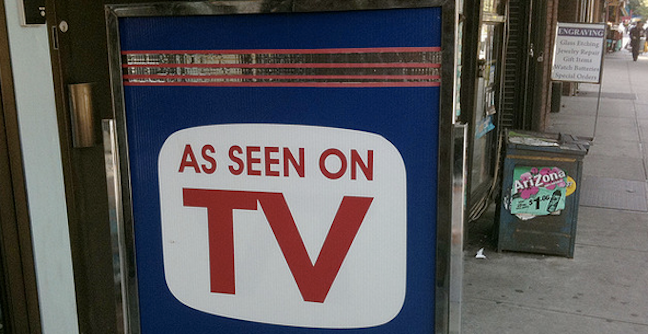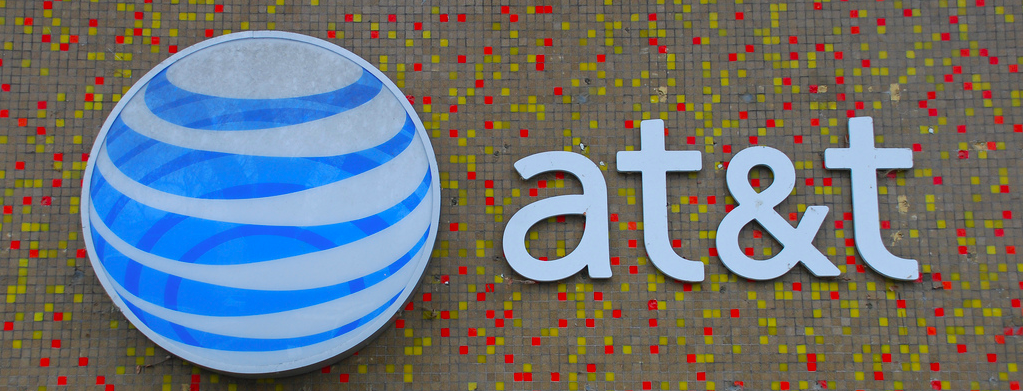Here’s the thing, if the Federal Trade Commission tells you not to deceive consumers with your ads or you’ll have to pay a hefty fine, they mean it. That’s the case for two auto dealerships that allegedly violated FTC orders put in place in 2012. [More]
federal trade commission

FTC Shuts Down Two Tech Support Schemes That Bilked $120M From Consumers
Sometimes when you can’t fix your computer yourself you turn to the experts. Unfortunately, some of those tech wizards are only out to help themselves. That appears to be the case for two Florida-based companies that allegedly conned tens of thousands of consumers – many of whom were senior citizens – out of $120 million by deceptively marketing computer software and tech support. [More]

Operators Of “Free Access To Credit Scores” Scam To Return $22M To Victims
Consumers looking for a good deal might be tempted to take unknown companies up on their offer of providing credit scores for free. But those promises can often be too good to be true. Just ask consumers bilked out of millions of dollars after falling for once such “deal”. [More]

TRUSTe To Pay $200K Fine In Settlement With FTC Over Allegations It Deceived Consumers
In this day and age where a new security breach is announced every other week, some consumers may be reassured that their web surfing is secure after seeing a TRUSTe certificate plastered on the bottom of a web page. But we’re finding out that’s not always the case, as the Federal Trade Commission announced a settlement with TRUSTe over allegations it deceived consumers about its recertification program for companies’ privacy practices. [More]

FTC Takes First Action Against Patent Trolls For Deceptive Sales, Phony Legal Threats
For the first time in its history, the Federal Trade Commission has brought action against a patent assertion company that allegedly used nefarious tactics in trying to pry money from other companies accused of violating patents it owned. [More]

The Important Legal Difference Between Being A Celebrity Endorser & Just A Famous Face In An Ad
Turn on your TV today and maybe you’ll see an iPhone ad with Jimmy Fallon followed by 30 seconds of Matthew McConaughey giving his personal philosophy on Lincoln automobiles. To many of us, it’s all part of the endless parade of familiar faces and voices being paid to sell us something, but there’s an important legal distinction between a celebrity who endorses a product they claim to believe in and one who is just picking up a paycheck to appear in an ad. [More]

FTC Sues Gerber For False Advertising Over Claims Its Formula Can Prevent Allergies
Parents typically choose baby food based on the idea that it’s nutritious and good for their child. So it makes sense that consumers might look for formulas that can prevent illness or even allergies. But those claims aren’t always truthful according to the Federal Trade Commission, which is suing Gerber Products Co. for falsely advertising its Good Start Gentle. [More]

Why AT&T Is Being Sued Over Data Throttling But Verizon Isn’t (Yet)
The glory days of unlimited mobile data plans are long behind us. For years, even the owners of “unlimited” plans have been subject to mysterious and inconsistent limits from their mobile providers. Yesterday, the poorly communicated limits of unlimited data became the core issue of a large lawsuit the FTC filed against AT&T. It’s the first time the agency has tackled data throttling at all, but if many companies are doing it, why target AT&T and not everyone else? [More]

FTC: Tech Support Representatives Pretended To Be From Microsoft, Facebook, Scammed $2.5M From Consumers
It makes sense that consumers with a lack of computer knowledge would seek services and assistance from well-known tech companies like Microsoft and Facebook. So it should come as little surprise that a shady company would use this information to dupe consumers out of millions by pretending to be from the popular tech firms selling support services and software. [More]

Company Touting Work-From-Home Opportunities Must Pay $25M To Consumers Who Made No Money
Here are a few clues that the employment “opportunity” you received in that email is a scam: 1) you’re required to pay your new employer hundreds of dollars for a starter kit or computer program; 2) once that program was purchased you’re encouraged to buy more programs for thousands of dollars; and 3) your new employer promises that you’ll be able to make thousands of dollars in a short period of time without ever leaving your couch. That’s about how it worked for a company the Federal Trade Commission recently ordered to repay consumers $25 million. [More]

FTC Stops Company From Charging $210 For Pills That “Burn Fat Without Diet Or Exercise”
Consumers who buy into a product that promises to let you lose weight while continuing to sit on the couch eating bonbons will likely lose more money than they will pounds. Such was the case for the customers of a dietary supplement company being shut down at the request of the Federal Trade Commission for making unsubstantiated health claims and signing consumers up for monthly charges without their knowledge. [More]

FTC: WordSmart’s Claims To Improve Students’ Test Scores Aren’t Exactly Truthful
Every parent wants their child to have the best possible chance of getting into a good college. Sometimes that includes enlisting the help of educational programs to boost their college admittance scores. But millions of consumers who tried to find that assistance from WordSmart Corporation only saw a decrease in their bank accounts. [More]

FTC May Block Planned Sysco And U.S. Foods Merger
Last December, we shared the news that commercial food suppliers U.S. Foods and Sysco were planning a merger, which would put about a quarter of the country’s entire foodservice-supply business in the hands of one company. The merger hasn’t yet gone through, and the Federal Trade Commission is considering a federal antitrust lawsuit to stop it. [More]

FTC: Yelp To Pay $450,000 For Collecting Personal Information From Children
With each new settlement the Federal Trade Commission announces, it appears more likely that mobile apps and children just don’t go together. In the most recent case, Yelp settled allegations that it improperly collected children’s’ personal information – a big no-no that means the online review site will pay hundred of thousands of dollars to rectify. [More]

FTC: Google Must Pay At Least $19M In Consumer Refunds For Unauthorized In-App Pruchases
Changes may have already been implemented to prevent kids from making unauthorized in-app purchases on apps from Google Play, but that doesn’t mean the company is off the hook for the huge bills some families faced. Google has agreed to provide full refunds – with a minimum payment of $19 million – to consumers who were charged for kids’ purchases without authorization of the account holder. [More]

Former Work-At-Home Schemer Hid Assets From FTC, Must Now Pay Previously Suspended $26.9M Fine
When your company is under investigation by federal regulators it’s best to be forthcoming with your net worth, because, you know, secrets come out. And when that secret happens to be hidden money, the subsequent fine will likely increase – by a lot. [More]




